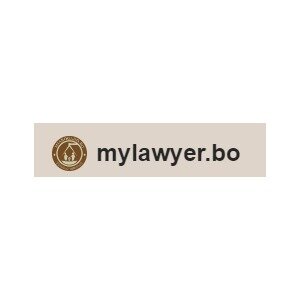Best Civil Rights Lawyers in Bolivia
Share your needs with us, get contacted by law firms.
Free. Takes 2 min.
Or refine your search by selecting a city:
List of the best lawyers in Bolivia
About Civil Rights Law in Bolivia
Civil Rights in Bolivia are rooted in the country's constitution which guarantees fundamental rights and freedoms to all citizens. The Bolivian legal framework is designed to promote equality and prevent discrimination based on race, gender, ethnicity, and socio-economic status. Civil Rights Laws aim to safeguard individual freedoms such as the right to free speech, the right to privacy, and the right to due process, among others. Bolivia's commitment to human rights is seen in its adherence to various international treaties and conventions.
Why You May Need a Lawyer
There are several situations where individuals might require legal assistance related to Civil Rights in Bolivia. These include instances of discrimination in employment or housing, racial or ethnical discrimination, violation of privacy rights, or infringement of freedom of expression. Additionally, if someone believes their due process rights have been violated by law enforcement or the judicial system, legal counsel may be necessary to navigate the complexities of the legal system. Victims of human rights abuses or illegal detention can also seek legal help to pursue justice and compensation.
Local Laws Overview
Bolivia's Civil Rights laws are comprehensive, encompassing various crucial aspects:
- The Bolivian Constitution recognizes and guarantees fundamental civil freedoms and rights.
- The Law Against Racism and All Forms of Discrimination (Law 045) aims to eliminate discrimination and promote equality.
- The Protection of Persons with Disabilities Act ensures rights and protections for individuals with disabilities.
- The Bolivian Constituent Assembly established laws that prioritize the collective rights of indigenous groups.
- Legislation also includes protections for women's rights, including laws against gender-based violence and discrimination.
Frequently Asked Questions
What are the primary Civil Rights recognized in Bolivia?
Bolivia recognizes rights such as freedom of speech, right to a fair trial, the right to privacy, anti-discrimination rights, and the rights of indigenous communities.
How does Bolivia address discrimination?
Through the Law Against Racism and All Forms of Discrimination, Bolivia actively works to combat and eliminate discrimination in all forms, providing legal measures and penalties against such acts.
Can I file a legal complaint if I feel my rights have been violated?
Yes, individuals can file complaints through the Bolivian judicial system or seek assistance from human rights organizations within the country.
What protections exist for indigenous peoples in Bolivia?
The Bolivian Constitution and specific laws prioritize the protection and promotion of indigenous people's rights, recognizing their customs, languages, and territories.
What support exists for victims of gender-based violence?
Bolivia has enacted laws for the protection of women against violence, providing mechanisms such as shelters, legal assistance, and specialized police units.
How is freedom of expression protected in Bolivia?
The Constitution guarantees freedom of expression, although there are established limits to prevent hate speech and protect public order.
What are the rights of individuals with disabilities?
Individuals with disabilities in Bolivia are protected under specific laws that ensure their right to equality in various sectors, including education, employment, and accessibility.
How do international treaties influence Civil Rights in Bolivia?
Bolivia adheres to various international human rights treaties, which reinforce and provide a framework for national laws to protect and promote civil rights.
Can foreigners living in Bolivia access Civil Rights protections?
Yes, foreigners are entitled to certain civil rights protections under Bolivian law, particularly in cases of discrimination or human rights violations.
Are there legal remedies available for human rights violations?
Victims of human rights violations can seek legal redress through the Bolivian justice system, and may also receive support from international human rights bodies and organizations.
Additional Resources
For individuals seeking more information or assistance regarding Civil Rights in Bolivia, the following resources may be helpful:
- Defensoría del Pueblo (Ombudsman's Office): Offers support and advocacy for human rights protection.
- The Ministry of Justice and Institutional Transparency: Provides legal support and guidance on civil rights matters.
- Human Rights Organizations: Local NGOs such as the Permanent Assembly of Human Rights offer resources and advocacy services.
- Legal Aid Clinics: Offer affordable or free legal support, often associated with universities or legal institutions.
Next Steps
If you require legal assistance related to Civil Rights in Bolivia, consider the following steps:
- Gather all relevant documentation and evidence related to your case.
- Seek initial consultations with a qualified lawyer specializing in Civil Rights to understand your legal options.
- Reach out to local human rights organizations for additional support or guidance.
- Consider utilizing mediation or conflict resolution services if appropriate.
- If necessary, initiate legal proceedings with the assistance of your lawyer to protect your rights and seek justice.
Taking these steps can ensure that you effectively address any civil rights issues you may face and receive the appropriate legal support needed.
Lawzana helps you find the best lawyers and law firms in Bolivia through a curated and pre-screened list of qualified legal professionals. Our platform offers rankings and detailed profiles of attorneys and law firms, allowing you to compare based on practice areas, including Civil Rights, experience, and client feedback.
Each profile includes a description of the firm's areas of practice, client reviews, team members and partners, year of establishment, spoken languages, office locations, contact information, social media presence, and any published articles or resources. Most firms on our platform speak English and are experienced in both local and international legal matters.
Get a quote from top-rated law firms in Bolivia — quickly, securely, and without unnecessary hassle.
Disclaimer:
The information provided on this page is for general informational purposes only and does not constitute legal advice. While we strive to ensure the accuracy and relevance of the content, legal information may change over time, and interpretations of the law can vary. You should always consult with a qualified legal professional for advice specific to your situation.
We disclaim all liability for actions taken or not taken based on the content of this page. If you believe any information is incorrect or outdated, please contact us, and we will review and update it where appropriate.
Browse civil rights law firms by city in Bolivia
Refine your search by selecting a city.













